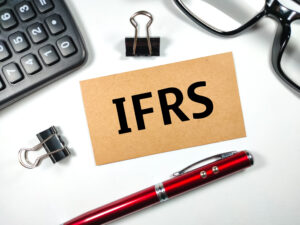The Indispensable Role of IFRS 17 in Insurance Contracts
Transformative Framework in Insurance
In the intricate world of insurance, accuracy in financial reporting holds immense importance. The International Financial Reporting Standard 17 (IFRS 17) on Insurance Contracts represents a groundbreaking framework fundamentally reshaping how insurers document and showcase their financial data. Mastery of IFRS 17 isn’t just a regulatory obligation; it emerges as a strategic necessity for individuals working in the insurance sector.
IFRS 17: A Paradigm Shift in Financial Reporting
IFRS 17 marks a significant shift in how insurance contracts are accounted for. Focused on enhancing transparency and consistency, this standard is pivotal in ensuring that insurers provide a clear, truthful representation of their financial position. For insurance professionals, mastering IFRS 17 is essential for compliance, fostering trust, and maintaining competitiveness in the market.
The Importance of Practical Learning in IFRS 17
Practical, hands-on learning is vital for professionals to grasp the intricacies of IFRS 17 fully. Comprehensive training courses that go beyond theoretical concepts and delve into practical applications are crucial. Such courses typically involve hands-on exercises, workshops, and case studies, enabling professionals to apply IFRS 17 principles in real-world contexts.
Standardizing Financial Reporting in Insurance
IFRS 17 provides a standardized approach to measuring and recognizing insurance contracts. It covers various aspects of financial reporting, such as determining contract boundaries, calculating risk adjustments, and ensuring consistency across reports. This standardization is critical for professionals navigating the regulatory complexities of the insurance industry.

Impact of IFRS 17 on Insurance Companies
The implementation of IFRS 17 has significant implications for insurance companies. It affects their financial statements, alters the recognition of profits, and impacts overall business strategies. Insurers must adapt their accounting practices and systems to comply with these new reporting requirements.
Navigating Regulatory Challenges
With IFRS 17, professionals in the insurance sector can confidently tackle regulatory challenges. Proficiency in this standard is key to positioning organizations for long-term success, ensuring compliance, and enhancing the quality of financial information provided to stakeholders.
IFRS 17 and Global Consistency
The global adoption of IFRS 17 aims to bring consistency in insurance contract reporting across different jurisdictions. This harmonization facilitates better comparison of financial statements across international markets, benefiting investors, analysts, and regulators.
The Role of Technology in Implementing IFRS 17
Technology plays a crucial role in implementing IFRS 17. Advanced software solutions and data analytics tools are essential for insurers to efficiently manage the complex calculations and reporting requirements mandated by the standard.
Professional Development and IFRS 17
For finance professionals in the insurance industry, continuous professional development in areas like IFRS 17 is indispensable. Staying updated with this standard’s latest changes and nuances is vital for effective financial management and strategic decision-making.
Mastering IFRS 17 is essential for anyone involved in the insurance sector’s financial reporting. It’s not just about compliance; it’s about understanding the broader implications of this standard on financial transparency, operational efficiency, and strategic planning. As the insurance industry continues to evolve, proficiency in IFRS 17 remains a key competency for finance professionals aiming to excel in this field.
